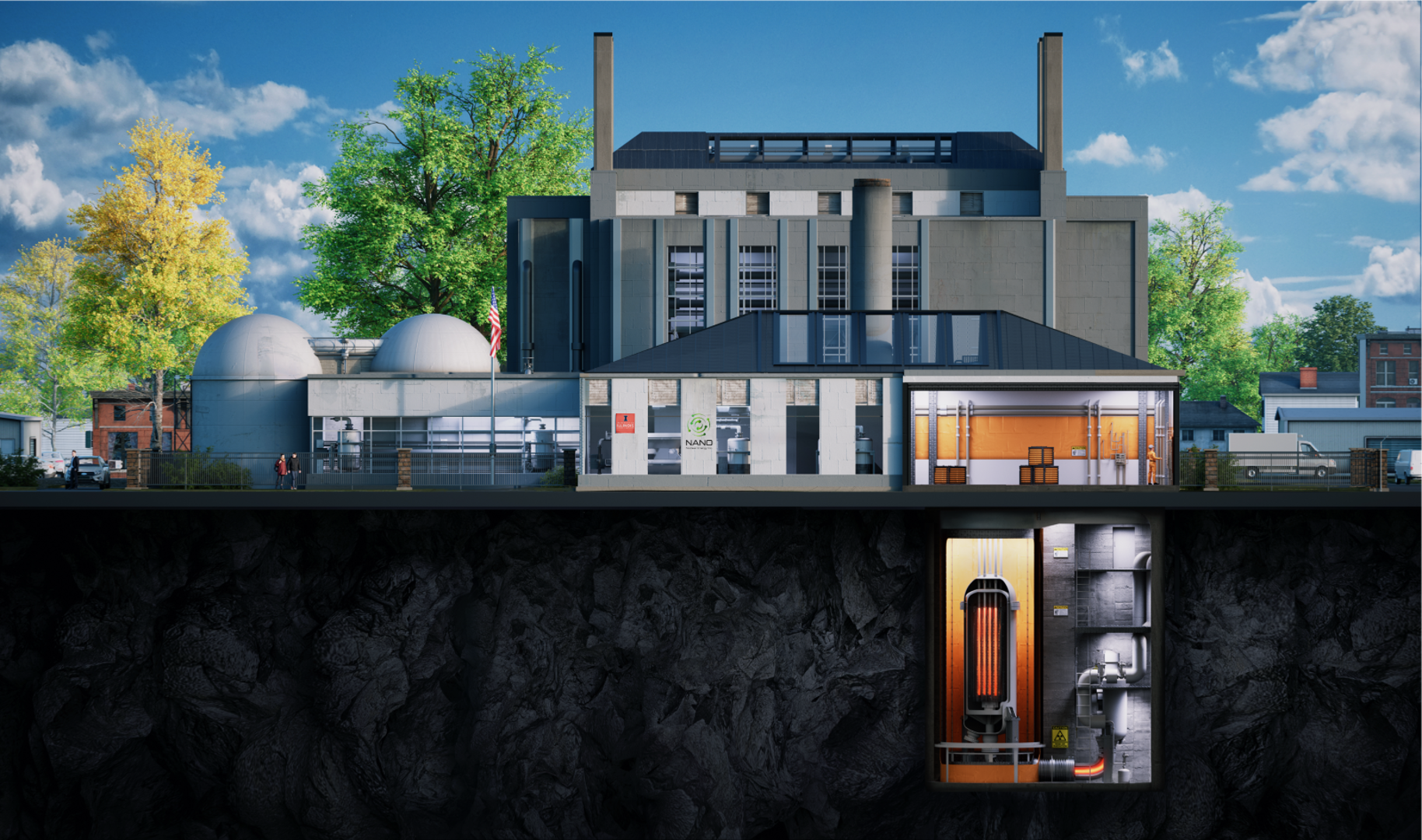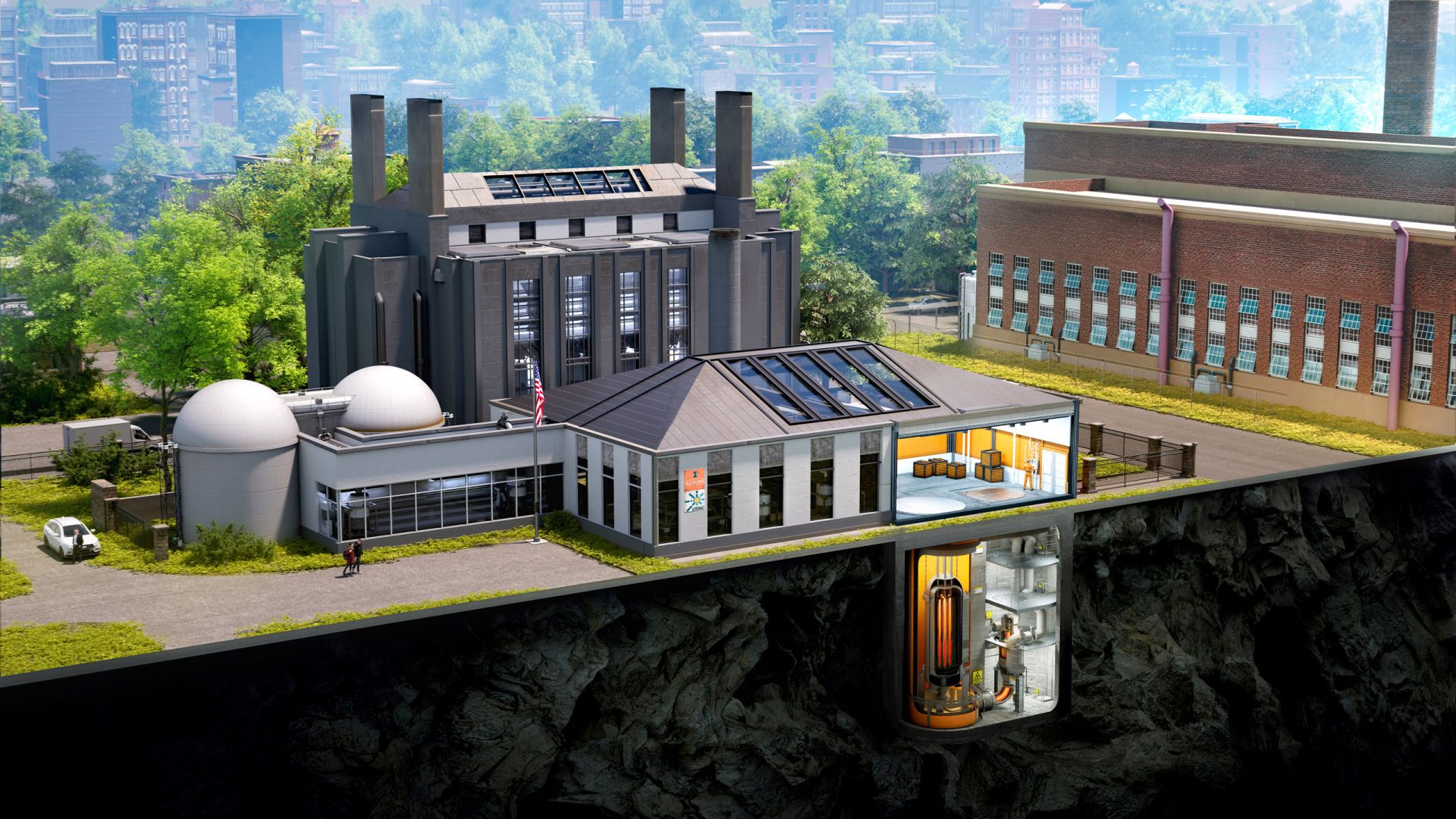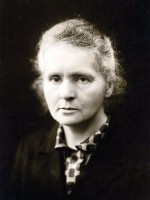A rendering of the proposed Kronos MRR at the University of Illinois Urbana-Champaign. Image: NANO Nuclear Energy Inc.
New York City–based advanced nuclear technology developer Nano Nuclear and the Office of Illinois Gov. J.B. Pritzker announced on Tuesday that Nano will receive $6.8 million in state funding to establish its new manufacturing and research and development facility in Illinois.
Concept art of NANO Nuclear’s KRONOS MMR research reactor that UIUC plans to operate on its campus in Champaign, Ill. (Image: NANO Nuclear)
Plans to bring a university research reactor like no other to the campus of the University of Illinois at Urbana-Champaign (UIUC) were punctuated last fall by the news that Ultra Safe Nuclear, the developer of the gas-cooled reactor technology selected for the Illinois Microreactor Project, had declared bankruptcy.
Conceptual art of USNC’s MMR, as proposed for construction on the UIUC campus. (Graphic: USNC)
It’s been almost 35 years since Illinois last added a nuclear power reactor to the grid (Braidwood-2, a pressurized water reactor operated by Constellation, reached commercial operation in October 1988). And it’s been 63 years since a research reactor reached initial criticality at the University of Illinois–Urbana-Champaign (UIUC). The university’s TRIGA Mark II started up in August 1960 and was shut down in 1998. For about 25 years, UIUC—the flagship public university in a state that generates more power from nuclear energy than any other—has lacked an operating research reactor.
Terrani, Huff, and Fleischmann had the honor of cutting the ribbon to celebrate the opening of the Pilot Fuel Manufacturing facility. (Photo: USNC)
Ultra Safe Nuclear Corporation (USNC) celebrated the opening of its Pilot Fuel Manufacturing (PFM) facility in Oak Ridge, Tenn., on August 18 with a ribbon-cutting ceremony and tour attended by assistant secretary for nuclear energy Kathryn Huff, Tennessee lieutenant governor Randy McNally, U.S. Rep. Chuck Fleischmann (R.), representatives from the offices of Sens. Marsha Blackburn (R.) and Bill Hagerty (R.), and other distinguished guests. The next day, radiological operations began at the privately funded facility, which was designed and built in less than twelve months within an existing industrial building purchased by USNC in 2021.
UIUC Student Section members. (Photo: UIUC NPRE)
The University of Illinois at Urbana-Champaign ANS Student Section is preparing to host the 2022 ANS Student Conference, to be held April 14–16 on the university campus. Registration is now open for the first in-person ANS student conference since 2019.
A rendering of Ultra Safe Nuclear Corporation’s micro modular reactor as proposed for construction on the University of Illinois at Urbana-Champaign campus. (Graphic: USNC)
The U.S. state with more nuclear power plants than any other—Illinois—has no operating university research reactors. A team at the University of Illinois at Urbana-Champaign (UIUC) intends to reverse that situation and construct a high-temperature gas-cooled microreactor. If the team's plans go ahead, the first new U.S. university research reactor deployment in about 30 years could also support commercial advanced reactor deployment.



 New York City–based advanced nuclear technology developer Nano Nuclear Energy has been awarded a Direct-to-Phase II Small Business Innovation Research contract for its Kronos micro modular reactor (MMR) by AFWERX, the innovation and venture arm of the U.S. Air Force. The contract calls for AFWERX, with the 11th Civil Engineering Squadron, to explore the feasibility of deploying the Kronos MMR Energy System at Joint Base Anacostia-Bolling (JBAB) in Washington, D.C.
New York City–based advanced nuclear technology developer Nano Nuclear Energy has been awarded a Direct-to-Phase II Small Business Innovation Research contract for its Kronos micro modular reactor (MMR) by AFWERX, the innovation and venture arm of the U.S. Air Force. The contract calls for AFWERX, with the 11th Civil Engineering Squadron, to explore the feasibility of deploying the Kronos MMR Energy System at Joint Base Anacostia-Bolling (JBAB) in Washington, D.C.








 The start of Marie Curie's story isn't like most of the other scientists that had made a name for themselves throughout history, mostly because she was a grown woman by the start of the 20th century. But she was the first woman to do a lot of things, including getting a Ph.D. from a university in France, and winning a Nobel Prize. She was also the first person ever to win a Nobel Prize in two different fields of science. To say she pushed the societal and scientific boundaries of her era is an understatement.
The start of Marie Curie's story isn't like most of the other scientists that had made a name for themselves throughout history, mostly because she was a grown woman by the start of the 20th century. But she was the first woman to do a lot of things, including getting a Ph.D. from a university in France, and winning a Nobel Prize. She was also the first person ever to win a Nobel Prize in two different fields of science. To say she pushed the societal and scientific boundaries of her era is an understatement.